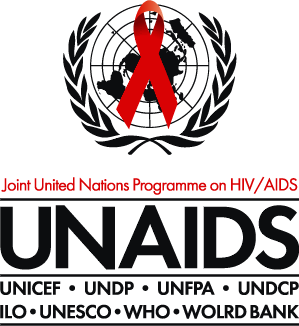OTGV #45 - Disability Sports
Some athletes get paid to perform and winning honour for
Rewards ranges from 10 thousand dollars for the SEA Games Gold to a whopping one million dollars for the much coveted Olympic Gold.
Hi welcome to On the Grapevine with me Chong Ching Liang.
The abled bodied athletes participating in the Hanoi Games received ballyhooed sending off and returning parties.
By contrast,
But at least, the Minister of State for Sports Chan Soo Sen is there to send them off.
"Although compared with the SEA games sending off event, this event rather modest in scale, fewer people around. Don't have the rah rahs, and the poms poms, but to me this is even more significant especially when we hear Mr Tan Ju Seng say, that relative to our abled athletes, we actually do relatively better in ranking in these two parallel games. [applause]"
How well did they do?
A Singaporean athlete Theresa Goh won top individual honours at the inaugural ASEAN para games in
The team also brought honour to
President of the Singapore Disability Sports Council or SDSC, Tan Ju Seng has a single vision and dream.
"What we like to see is more integration. You know this idea of the disabled going off on their own, and competing, training on their own separate from the able bodied, I think that has to change. There is so much synergy. The able bodied can learn from the disabled, and the disabled can learn from the able-bodied as well. Facilities can be shared; we don't have to re-invent the wheel in so many cases. We don't have to organise our sports events. There are already in existence, events for the able bodied, all that is needed is for us to just create a division within these events for the disabled, and in this way, we can sort of ride on what is already happening."
What can abled bodied athletes learn from their disabled fellow national athletes?
Local swim legend Ang Peng Siong, who is also the swim coach for the squad going to
"What I find is pretty amazing is that this group of disabled athletes are behaving just like anyone else and just making the best of their opportunities to train hard and improve on their performances. So they get up early in the morning if need be. And if someone is wheelchair bound, I am sure that they take a lot more time to prepare themselves for training. Sometimes our abled athletes may groan and be disgruntled about getting up so early and making the trip to the swimming pool, I find that these disabled athletes you don't have to say much, if they need to be at training, they will turn up with no complaints at all."
Mr Chan says the athletes must be lauded for daring to break societal norms and help bring the greater society closer to the world of people with disability.
"You are trying to prove that you are a fellow member of the committee please treat us and don't treat us different. This is a not an easy battle to win but I am sure that our athletes have led the way in paving for integration of the people with disability."
Kevin Tay is one of our national athletes going to the Fespic Games in
He tells me how he feels and his training routines.
"A little nervous cause this one is my first time." "I train every week lah, Monday, Wednesday, and Friday, every session two hours."
Kevin hopes to win a gold for
He's a newbie but here's another who has done
"My name is Ahmad bin Yusoff. I represent athletics in
Ahmad also trains multiple times weekly.
He is luckier as he isn't wheel-chair bound.
Quite a number of this group of national athletes is wheelchair-bound.
This means they can only take
This means more cash outlay.
Ang Peng Siong on some difficulties encounter by his swimmers.
"There are situations where I will have to do my part as the coach and assist the athletes to the venues accordingly because there are some venues that are not flexible for disabled individuals. So I would have to actually carry some of the athletes up the stairs and to the venues."
Mr Chan Soo Sen says society will eventually catch up with this group of very brave individuals so that eventually, accessibility to facilities and places will no longer be an issue.
"As
They wear their differences physically, and their hearts on their sleeves bleeding scarlet crescent moons and stars.
Their exploit aren't well covered in the media but the honour they brought to
This is Chong Ching Liang for Newsradio 938.
=====================================
Related Links:
Newsradio 938 (now 938Live)

http://www.938live.sg/
Wikipedia page on 2003 SEA Games

http://en.wikipedia.org/wiki/2003_Southeast_Asian_Games
Singapore Disability Sports Council

http://www.sdsc.org.sg/





